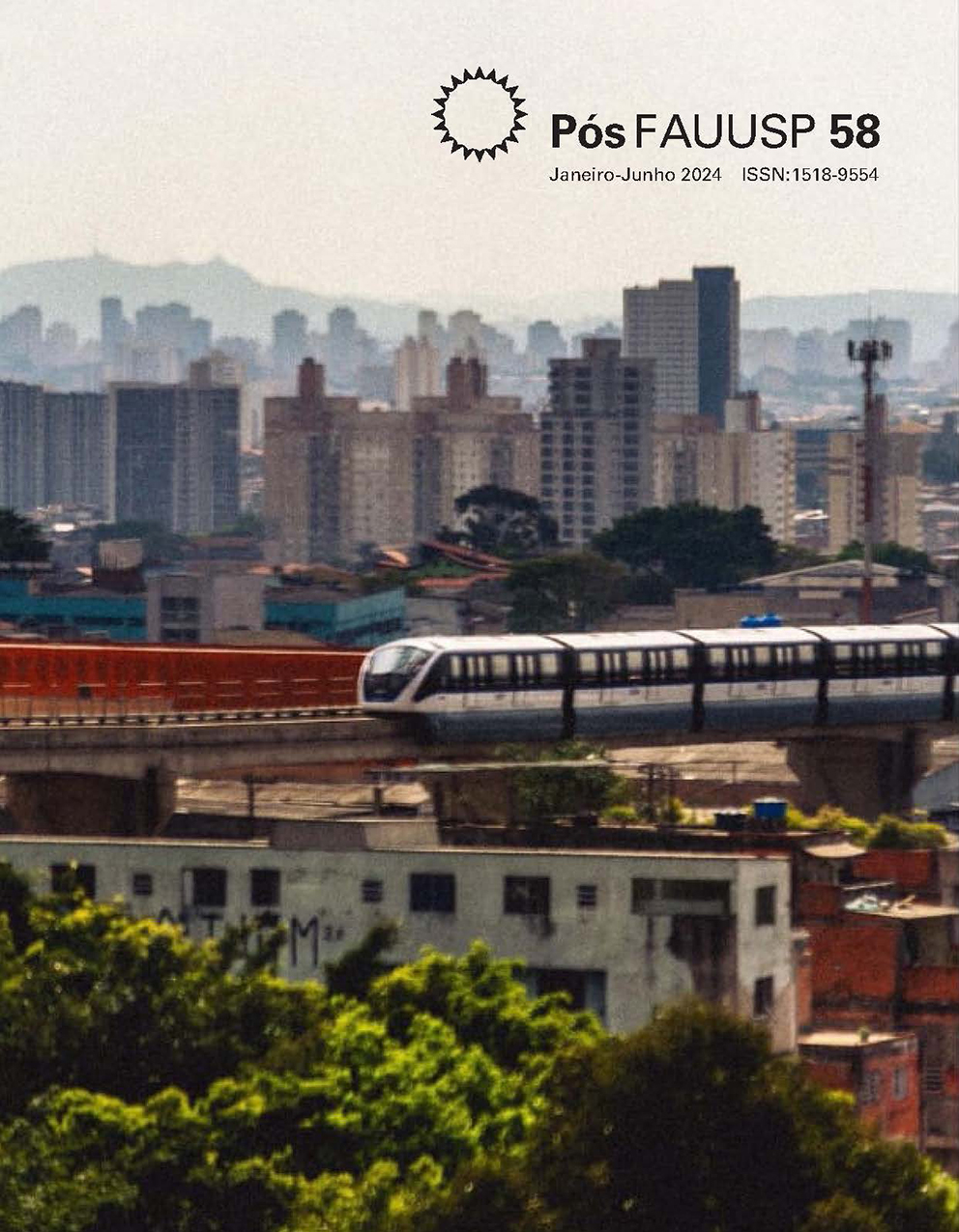Decolonizing the capital: political-affective cartography of wandering bodies around the city of Brasília
DOI:
https://doi.org/10.11606/issn.2317-2762.posfauusp.2024.208304Keywords:
Cartography, Urban interventions, Decolonial aesthetics, Wandering, Brasília, DFAbstract
Based on the analysis of urban interventions by four artists and collectives from both the central and peripheral areas of the Federal District, I propose the development of a brief political-affective cartography of Brasília, whose original urban design is characterized
by constituting a segregating device that, to this day, grants to the city one of the greatest social inequalities in the country. To achieve this, I initially turn to the concept of decolonial aesthetics as a theoretical-epistemological framework to decentralize the role of representation and visual stimulation in the arts, prioritizing other forms of meaning production by aisthesis, placing the body as an agent of city occupation, as proposed by the practice of delirium ambulatorium in Hélio Oiticica’s work. I find in the discussed artists echoes of the tropicalist painter and sculptor in the aesthetic practice of walking and wandering as a possibility to merge the body with space, constituting a subversive way of understanding the formation of subjectivities in the neoliberal urban context.
Downloads
References
BRITTO, Fabiana Dultra; JACQUES, Paola Berenstein. Corpocidade: arte enquanto micro-resistência urbana. Fractal: Revista de Psicologia, v. 21, p. 337-349, 16 set. 2009.
CARERI, Francesco et al. Walkscapes: el andar como práctica estética. Barcelona: Editorial Gustavo Gili, 2013.
DELEUZE, Gilles. ¿ Que és um dispositivo ? In: DELEUZE, Gilles. Michel Foucault, filósofo. Barcelona: Gedisa, 1990, pp. 155-161.
DOS ANJOS, Moacir. As ruas e as bobagens: anotações sobre odelirium ambulatorium de Hélio Oiticica. ARS (São Paulo), v. 10, p. 22-45, 2012.
FOUCAULT, Michel. História da sexualidade I: a vontade de saber. 22. ed. Rio de Janeiro: Graal, 2012.
FREITAS, Gabriela. Reconfigurações do conceito de flâneur pelas práticas artísticas do caminhar na artemídia contemporânea. Acta poética, v. 41, n. 2, p. 131-148, 2020.
GONZÁLEZ, Lélia. A categoria político-cultural de amefricanidade. Tempo Brasileiro, Rio de Janeiro, n. 92/93, p. 69-82, jan./jun, 1988.
HARVEY, David. Direito à cidade. Lutas Sociais, São Paulo, n.29, p.73-89, jul./dez, 2012.
JACQUES, Berenstein Paola. Elogio aos errantes. Salvador : EDUFBA, 2012.
MIGNOLO, Walter. Estéticas decoloniales. Bogotá: Editorial Universidad Distrital Francisco José de Caldas, 2012.
MIGNOLO, Walter; GOMEZ, Pedro Pablo (Eds.). Estéticas y opción decolonial. Bogotá: Editorial Universidad Distrital Francisco José de Caldas, 2012.
ROLNIK, Suely. Cartografia sentimental. Transformações contemporâneas do desejo. Porto Alegre: Editora Sulina, 2011.
SANTOS, Milton. A natureza do espaço. 4 ed. São Paulo: EdUSP, 2006.
SILVA, Armando. Atmosferas Urbanas, São Paulo: Edições Sesc, 2014.
Downloads
Published
Issue
Section
License
Copyright (c) 2024 Gabriela Freitas

This work is licensed under a Creative Commons Attribution-NoDerivatives 4.0 International License.

This work is licensed under a Creative Commons Attribution 4.0 International License.
DIADORIM - Diretório de Políticas Editoriais












